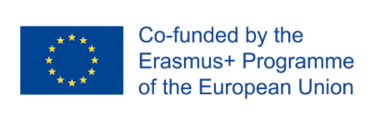The CLUVEX project will be presented at the European Geosciences Union (EGU) General Assembly (27 Apr -2 May 2025, Vienna, Austria) during the Session EOS2.5 “From real-world data to climate change education: A call to action”. The joint presentation (EGU25-15778) of the CLUVEX project together with the two other Erasmus+ projects the UnaVEx (https://www.atm.helsinki.fi/unavex) and the ClimEd (http://climed.network) is entitled “Virtual Exchanges and Climate Education as a Tool for European Partnership Development for SDGs”.
ABSTRACT:
The traditional model of in-person education is evolving, with distance learning becoming increasingly popular. Virtual Exchange (VE) enhances interest in distance education by adding interactive elements. The University of Helsinki (UHEL) coordinates two EU ERASMUS+ VE projects: “Climate University for Virtual Exchanges” (CLUVEX) and “Una Europa Virtual Exchanges for Sustainability” (UnaVEx), running from 2023 to 2026. These projects address climate change and sustainable development. Additionally, UHEL leads the ClimEd project, which offers online training on climate services, adaptation, and mitigation, incorporating VE elements.
CLUVEX and UnaVEx aim to engage up to 5,000 university students (BSc to PostDoc levels) in VEs over three years. CLUVEX integrates Climate University online courses, while UnaVEx builds on Una Europa Micro-Credential in Sustainability and the associated MOOCs. These projects, involving partners from Europe, Neighbourhood East, and Africa, are testing and refining VE as part of distance learning. During the COVID-19 pandemic, ClimEd successfully used VE for remote training with Ukrainian universities, focusing on advanced educational and communication technologies in climate services.
Students in CLUVEX and UnaVEx VEs collaborate in international groups to learn about climate change and sustainability. They earn ECTS credits and certificates like the Climate Messenger (CLUVEX) or Sustainability Advocate (UnaVEx). Similarly, ClimEd participants receive training certificates with ECTS credits. Feedback and motivation data are collected to improve the VE approach.
Since mid-2023, CLUVEX has developed resources like the Virtual Exchange Guidebook, Climate Literacy Guidebook, and Climate Messenger Code of Conduct, along with climate-related lectures and visualization tools. Six moderator training sessions in 2024 covered topics such as technical skills, MOOCs, soft skills, and CLUVEX handbooks. The first VE Week for students was held on October 14–18, 2024. UnaVEx began preparations in 2024, focusing on VE Week exercises. Moderator training started in late 2024, with the first VE Week scheduled for February and March 2025, featuring an “Introduction to Sustainability” exercise. ClimEd has successfully conducted five of seven planned trainings. The sixth, focusing on MOOC development, is scheduled for February 2025 in Estonia. The seventh, on using climatic information for climate-dependent industries, is planned for April 2025 in Spain.
Results from the initial VE Weeks of CLUVEX and UnaVEx will highlight how VEs enhance engagement in distance learning about climate issues. VEs foster skills like remote collaboration, technical proficiency, and teamwork. The ClimEd project’s completed VE-based trainings will also be summarized.
If you are interested in further details of the CLUVEX project, please, contact the CLUVEX team members.
If you are interested to participate the project, please leave your own contact information here and we will get back to you.
